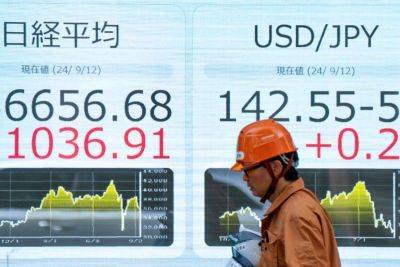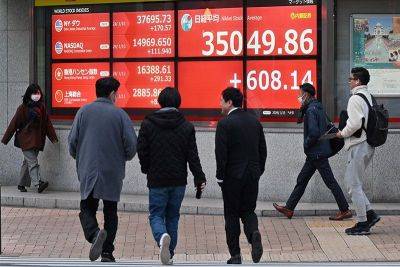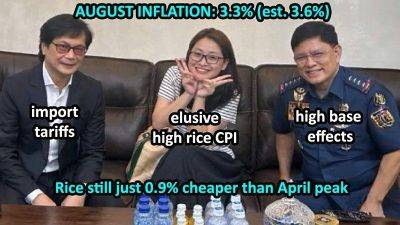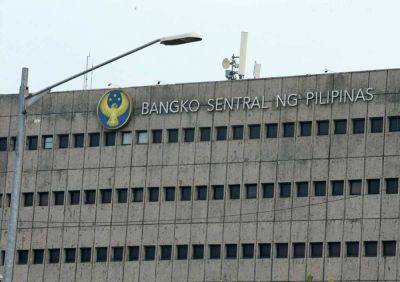Inflation eases to 3.3% in August
MANILA, Philippines — The Philippine inflation eased to 3.3% in August, a full point from the July inflation rate of 4.4%, the Philippine Statistics Authority (PSA) said on Thursday, September 5.
This puts inflation back into the government’s target inflation rate of 2% to 4%.
“The Philippines’ headline inflation or overall inflation eased to 3.3%in August 2024 from 4.4% in July 2024. This brings the national average inflation from January to August 2024 to 3.6%. In August 2023, the inflation rate was higher at 5.3%,” the PSA said in its report.
The PSA said that the downtrend in overall August inflation was due to the slower increase of food and nonalcoholic beverages, which was at 3.9% in August compared to the 6.4% in July.
“The deceleration of food inflation in August 2024 was primarily brought about by the slower inflation rate of rice with 14.7% in August 2024 from 20.9% in the previous month,” the PSA said.
Lower food inflation was also noted among the following:
Transport inflation also slowed down to 3.4% in August from 3.6% in July, the PSA said.
However, the statistics agency noted that there were higher annual increases of several non-food commodities.
“On the contrary, the index of housing, water, electricity, gas and other fuels exhibited a higher annual increase of 3.8% during the month from 2.3%in July 2024,” the PSA said.
The PSA listed the following commodity groups as the highest contributors to the overall August 2024 inflation:
Lower inflation does not necessarily mean lower prices, it only means that prices are rising at a slower pace.
The National Economic and Development Authority (NEDA) said that the inflation was consistent with other ASEAN countries.
“The sustained easing of inflation will support growth in household consumption, which elevated prices have long suppressed. Low-income households will benefit from the decline in food inflation, as food constitutes more than half (51.4 %) of the consumption of the bottom 30 percent of households,” NEDA Secretary Arsenio Balisacan said in a statement on Thursday.







